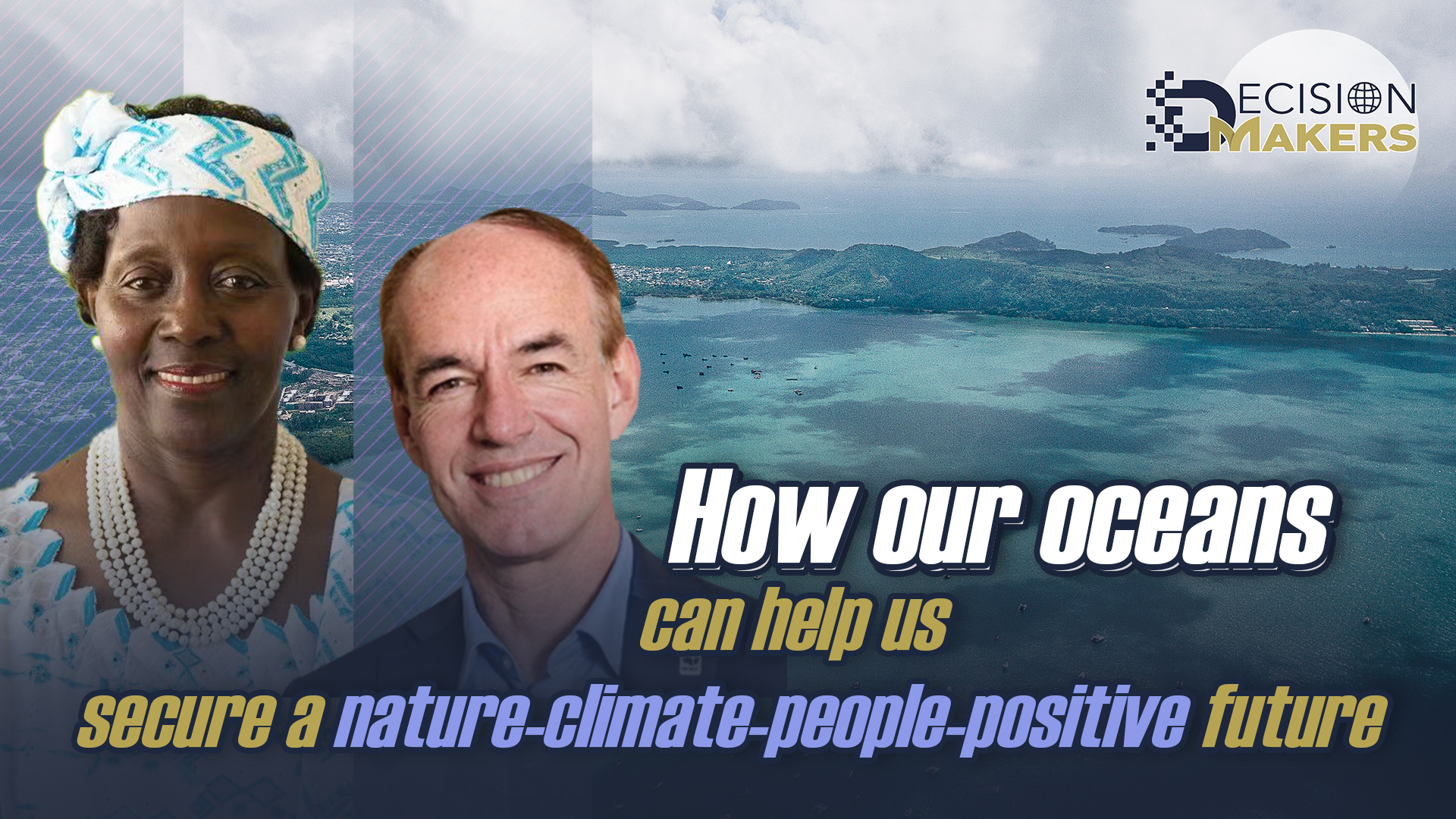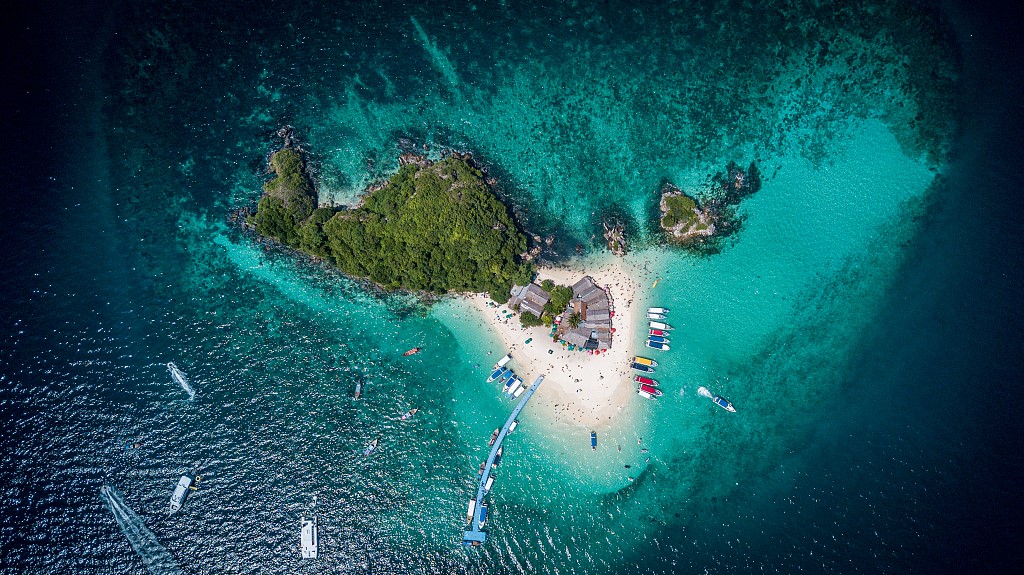
Editor's note: Elizabeth Maruma Mrema is the Executive Secretary of the Convention on Biological Diversity. Marco Lambertini is the Director General of WWF International. The article reflects the authors' opinions and not necessarily those of CGTN.
When we see our spectacular blue planet from space, we see no borders. We see no separation between our climate and nature, or nature and people. We see only our single, fragile shared home in the vastness of space.
Yet when we endeavor to manage Earth's resources, protect its diversity of life and secure our own futures, we too often unhelpfully parse the ocean, climate, nature and human well-being as if they function independently. They do not. It's time we recognize and leverage these fundamental connections in order to achieve the UN Sustainable Development Goals (SDGs) and build a nature-climate-people-positive future.
World Oceans Day, June 8, falls in the middle of a critical year for people and planet. In the coming weeks, delegations representing some 200 countries will convene in Nairobi to further develop the post-2020 global biodiversity framework under the Convention on Biological Diversity (CBD) and in Lisbon for the second UN Ocean Conference, aiming to expand commitments and ambition for effective protection, sustainable use and investment in a healthy global ecosystem.
These are pivotal discussions, when governments, businesses and civil society will define targets and actions to halt and reverse the loss of nature, creating opportunities to advance bold and integrated solutions across biodiversity, ocean and climate agreements. These targets will chart a course. If they are ambitious and backed by specific commitments to ensure delivery, humanity can restore nature and secure a sustainable future. If they fall short and offer only incremental change, we will find ourselves rudderless in rough seas.

Our ocean can be a mighty ally if we choose the first course. For all of human history, the ocean has kept our climate in balance, fed communities, supported trade and economic development, and provided habitat for an astonishing diversity of life. It can continue to provide all these services if we integrate ocean protection and management in the global climate and biodiversity frameworks established by the Paris Agreement and CBD, and secure the delivery of the Sustainable Development Goals.
As co-focal points for the UN Community of Ocean Action for the Marine and Coastal Ecosystems Management, we work to champion diverse, area-based measures that can be used to sustainably manage, protect, conserve and restore marine ecosystems. Through a new global biodiversity framework, we want to see strong recognition of the services ocean ecosystems provide for a well-functioning, happy and healthy society.
Habitats such as mangroves, seagrass, coral reefs, and coastal wetlands play a vital role in the resilience of economic, social and natural systems when facing extreme events and other impacts of climate change. Estimates of the economic value of mangroves alone for flood risk reduction exceed $65 billion a year, and if mangroves were lost or destroyed, 15 million more people would be flooded annually across the world.
The ocean is the planet's largest carbon store. Per unit area, seagrass meadows, mangrove forests and salt marshes can be more effective stores of carbon than tropical forests, and although coastal wetlands represent only less than three percent of terrestrial forests coverage, they can sequester similar amounts of organic carbon annually.
These marine and coastal ecosystems also underpin fisheries, which provide over three billion people with their primary source of protein by providing essential habitats for what is eventually caught, sold, and eaten. In doing so, they "pay" for their protection in economic and social dividends – delivering triple bottom-line benefits in terms of nutrition, mitigation and resilience.
This multitude of benefits has helped push the ocean up the agenda at global forums, with a growing number of countries and companies backing the goal of a nature-positive world by 2030, and area-based conservation and effective, inclusive community-based management seen as critical tools to advance progress. This includes strong commitments for action, including, for example, those expressed via the G7 Nature Compact and through the Leaders' Pledge for People.
However, governments had not met the CBD Aichi Biodiversity Target of 10 percent marine protected area coverage by 2020, and a wide gap remains to ensure that marine protected areas (MPAs) are effective, equitable, representative, and well-connected. So, while we encourage and expect parties to the CBD to agree ambitious new targets and a multitude of exciting new commitments to be made in Lisbon, these must be grounded in plans for implementation, which include financing, capacity building, technology transfer, and assurance of inclusivity and transparency.
Governments and financial institutions should significantly step up their investments in the kind of ambitious, inclusive, and integrated solutions required to fulfil the Sustainable Development Goals. Further strengthening the links between the ocean, biodiversity and climate can deliver a future where a healthy ocean continues to function as the engine of our singular, superlative planet.
(If you want to contribute and have specific expertise, please contact us at opinions@cgtn.com. Follow @thouse_opinions on Twitter to discover the latest commentaries in the CGTN Opinion Section.)

